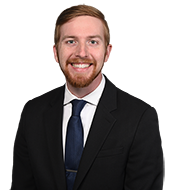COVID-19: California Jurisdictions Extend or Reissue COVID-19 Emergency Paid Sick Leave Ordinances
The legislation designed to combat COVID-19 must feel the same as we all do about the pandemic: It is lasting a lot longer than expected. As the country enters year two of the COVID-19 pandemic, it does so with many of the legislative and regulatory measures having expired at the end of 2020. While the federal government continues to negotiate new relief packages to combat the continued effects of the COVID-19 pandemic, local governments across California are either reinstating relief programs they developed in 2020 or extending the effect of these programs into 2021. Many local jurisdictions, for example, have announced new policies extending emergency paid sick leave to employees affected by the COVID-19 pandemic, and many of these policies are identical in both form and substance to their predecessor policies.1 This alert provides a consolidated update of the jurisdictions in California that have extended their Emergency Paid Sick Leave Ordinances.
Long Beach
The City of Long Beach’s emergency paid sick leave ordinance never contained an expiration date. Instead, the ordinance requires a report every 90 days to ensure the ordinance remains necessary for the city’s economic recovery efforts. At publication, the ordinance remains in force.
Los Angeles County and City
The Board of Supervisors for Los Angeles County issued a new emergency paid sick leave ordinance, revising the previous ordinance that expired on 31 December 2020. This new ordinance provides greater protection to employees than the original by broadening the scope of employers subject to its provisions. The previous ordinance affected only employers who were not already subject to the Families First Coronavirus Response Act (FFCRA). With the expiration of the FFCRA’s sick leave benefits, however, the County expanded the new ordinance to cover all employers in the unincorporated areas of the county. The new ordinance is effective until two weeks following the expiration of the County’s COVID-19 local emergency, which currently does not have an end date. This effective date change now mirrors the City of Los Angeles’ supplemental paid sick leave ordinance, which also remains in force.
On 10 February 2021, the City of Los Angeles also revised its supplemental paid sick leave ordinance to extend benefits to a larger group of employees. Under the previous ordinance, the employer needed to provide benefits only to those employees whom it employed between 3 February 2020 and 4 March 2020. Under this new ordinance, however, an employee qualifies for supplemental paid sick leave benefits if the employee has worked for the same employer for 60 days. The ordinance sets the rate of benefits based on the average two-week rate of pay the employee earned over the 60-day period.
Oakland
Oakland extended its emergency paid sick leave ordinance on 19 January 2021. Unlike other jurisdictions, Oakland did not set a deadline for when its ordinance would expire. Instead, the city council extended the ordinance’s application until the end date of Oakland’s COVID-19 emergency declaration.
Sacramento
Beginning on 14 January 2021, the City of Sacramento extended its emergency paid sick leave ordinance to last until 31 March 2021. The ordinance applies to employers with 500 or more employees, initially designed to cover those employers not subject to the FFCRA—while that law was in force.
San Francisco County and City
The city and county of San Francisco extended its emergency paid sick leave ordinance to last until 11 February 2021. As of writing, the Board of Supervisors has voted to extend the ordinance for another 60-day extension, which would extend benefits until 12 April 2021. The ordinance extension now awaits the mayor’s approval to become effective. The ordinance, like many of the other ordinances, applies to employers with 500 or more employees.
If the mayor of San Francisco grants this extension, however, the ordinance will contain several new provisions. First, the new ordinance will exempt any 501(c)(3) nonprofit organizations that meet certain conditions from the requirements to provide this sick leave. A 501(c)(3) organization can qualify for the exemption under two conditions: (1) the organization must preserve its 501(c)(3) status with the Internal Revenue Service; and (2) the organization must not engage in “healthcare operations,” as defined by the ordinance. Second, the new ordinance removes a provision from earlier versions of the ordinance that permitted an employee to utilize emergency paid sick leave without regard for whether and when the employer scheduled the employee to work. Under the new ordinance, an employee can use the emergency paid sick leave only for covered reasons and only when the employer schedules the employee to work.
San Jose
The City of San Jose formally extended its emergency paid sick leave ordinance to last until 30 June 2021. This new ordinance provides greater protection to employees than that afforded by the original ordinance by broadening the scope of employers subject to its provisions. The previous ordinance affected only employers who were not already subject to the FFCRA. With the expiration of the FFCRA’s sick leave benefits, however, the city expanded the new ordinance to cover all employers subject to the city’s minimum wage ordinance.
San Mateo County
San Mateo County extended its emergency paid sick leave ordinance until 1 May 2021. As with the Sacramento and San Francisco ordinances, this ordinance applies to employers with 500 or more employees.
City of Santa Rosa
On 2 February 2021, the City of Santa Rosa passed a new local urgency ordinance temporarily reinstating employer-provided, COVID-19-related paid sick leave for employees within the Santa Rosa city limits. This ordinance mirrors the provisions of the FFCRA, though it is applicable to all businesses within Santa Rosa city limits, regardless of size or sector. The order is effective through 31 March 2021.
Sonoma County
On 9 February 2021, the Sonoma County’s Board of Supervisors extended paid leave benefits through 30 June 2021. While previous extensions of the ordinance affected only employers covered under the FFCRA and employers with more than 500 employees, this new ordinance affects all employers in the county, regardless of size. Furthermore, the new ordinance requires employers to post notices in the workplace written in both English and Spanish that explain the benefits available to employees. Finally, the new ordinance also provides a limited exception for health care providers and emergency responders. The new ordinance permits these employers to deny requests from their employees to take leave in order to provide care for individuals whose senior care providers, schools, or childcare providers are closed in narrow circumstances. The new ordinance also permits employers to deny leave requests in whole or in part based upon a good faith determination that the leave would create a staffing shortfall interfering with the employer’s operational needs.
The extension of the foregoing ordinances does not require replenishing an employee’s leave bank if an employee has already used the leave provided under the FFCRA or the previous ordinances. Generally, the local emergency paid sick leave ordinances allow an offset for hours provided before these jurisdictions extended their ordinances. Lastly, if an employee did not deplete the full bank of hours in 2020, the unused hours will carry over. Thus, a full-time employee who used eight hours in 2020 would carry over a balance of 72 remaining hours and would not get a new bank of 80 hours in 2021.
For specifics about each jurisdiction’s emergency paid sick leave ordinances, please contact your employment counsel. For more information on what California and other states have done in efforts to combat COVID-19, please see our COVID-19 resources page.
This publication/newsletter is for informational purposes and does not contain or convey legal advice. The information herein should not be used or relied upon in regard to any particular facts or circumstances without first consulting a lawyer. Any views expressed herein are those of the author(s) and not necessarily those of the law firm's clients.






